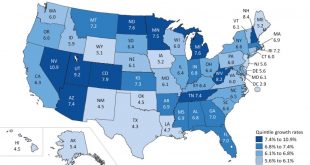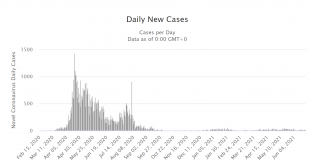In 1999, social expenditure in Switzerland was CHF 13,370 per resident. By 2019, the same figure had reached CHF 21,300, a rise of nearly 60%. © Alexey Stiop | Dreamstime.com Over the same period, total inflation was around 11%. Applying inflation to CHF 13,370 brings the figure to CHF 14,480. Why has the cost risen beyond this and how has the extra spending been funded? One of the key drivers behind the rise in social expenditure is increased spending on pensions as...
Read More »Covid: Swiss Government sets out Autumn Scenarios and Measures
On 30 June 2021, Switzerland’s Federal Council discussed ways of preparing Switzerland for the autumn and winter months and a possible renewed rise in the number of coronavirus cases. © Silviu Matei | Dreamstime.com From the meeting ministers produced a report setting out various scenarios and response plans. The key elements are rapid identification of new variants of concern, continued progress with vaccination and a focus on ensuring sufficient capacity for...
Read More »Experts Said Ending Lockdowns Would Be Worse for the Economy than the Lockdowns Themselves. They Were Wrong.
Here’s something we often heard in 2020 from experts who wanted long and draconian covid lockdowns: “Yes, these say-at-home orders are causing economic turmoil, but if you don’t lock everyone down now—and keep them locked down for a long time—your economy will be even worse off!” The reasoning was that without lockdowns, the covid-19 virus would spread out of control and that as a result, so many people would die—or become so ill—that virtually everyone would become...
Read More »Swiss to keep Sipping from Single-Use Plastics as EU Ban takes Effect
Forbidden fruit: the paper straws are OK, but the plastic cup is banned in much of Europe Westend61 / Maria Elena Pueyo Ruiz Single-use plastic items like straws and cups are no longer allowed in the 27 European Union countries. This isn’t the case in non-member Switzerland, where retailers and restaurants are taking their own approach. The EU ban on certain plastic products took effect on July 3 and covers a range of everyday items from food packaging to wet wipes....
Read More »Post-Covid China
Lessons to be Learned from East Asia The world should take a lesson from how East Asia ran itself in 2020. Japan had no lockdown. None. With an aging population, its death rate has been creeping up for many years. In 2020, it fell by 0.7%, as if Covid-19 was a life-saver. The Prime Minister of Singapore repeatedly appeared on TV to advise people to live normally and not let fear dominate. Taiwan had a total of 623 Covid-19 related deaths [ed. note: there were only...
Read More »Virus Z: A Thought Experiment
What’s striking about our thought experiment is how little reliable data we have about the transmissibility of our hypothetical Virus Z and the long-term consequences of its mutations. Let’s run a thought experiment on a hypothetical virus we’ll call Virus Z, a run-of-the-mill respiratory variety not much different from other viruses which are 1) very small; 2) mutate rapidly and 3) infect human cells and modify the cellular machinery to produce more viral...
Read More »Inflation Is a Form of Embezzlement
Monetary inflation is just a type of embezzlement. Historically, inflation originated when a country’s ruler such as king would force his citizens to give him all their gold coins under the pretext that a new gold coin was going to replace the old one. In the process of minting new coins, the king would lower the amount of gold contained in each coin and return lighter gold coins to citizens. Because of the reduced weight of gold coins that were returned to citizens,...
Read More »Banks Urged to think Green or Face Extinction
Financial institutions must be wary of being consumed by the consequences of careless environmental or social decisions. Keystone / Rank Augstein Climate change is forcing financiers to change the way they think and act. This could have a big impact on their balance sheets – and potentially their very survival. “Bankers are no longer purely financial specialists, but also connoisseurs of the environmental and social footprint of investments,” said Yves Mirabaud in...
Read More »Death and Libertarianism
Whenever a government program or policy produces deaths of innocent people, the way I figure it is that that makes it incumbent on libertarians to take a firm stand against such programs and policies. We all know that there are all sorts of government regulations that deprive people of liberty that we libertarians need to oppose. Recent examples include mandatory lockdowns and mask mandates. But there is something about the finality of death that makes government...
Read More »Swiss Meat and Eggs often not very Swiss
Any animal raised and slaughtered in Switzerland can be labelled Swiss. However, what the animal has been fed could be from anywhere. If animals are what they eat then much of the meat and eggs labelled Swiss aren’t very Swiss. © Sergio Bertino | Dreamstime.com A key challenge for meat, dairy and egg consumers is the absence of information on labels, which is limited to provenance. Information about what an animal has been fed is not contained on the labels of meat,...
Read More » Swiss Economicblogs.org
Swiss Economicblogs.org








